Best books of 2015
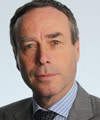
Simply sign up to the Life & Arts myFT Digest -- delivered directly to your inbox.
Lionel Barber
Editor of the Financial Times
In How Music Got Free , Stephen Witt tells of how technology in the form of the MP3 digital format brought the music industry to its knees. His book is a tour de force, delving into the criminal underworld of hackers and pilferers as well the complacent corporate boardroom. Shortlisted for the 2015 Financial Times and McKinsey Business Book of the Year Award.
. . .
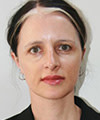
Larissa MacFarquhar
Author of Strangers Drowning: Voyages to the Brink of Moral Extremity
Mislaid by Nell Zink is an exquisite soufflé of a novel — effervescently absurdist and unrelentingly arch. But it’s carnal and satirical and American enough to be heartier than camp — it’s Ivy Compton-Burnett crossed with Mary Karr. A teenage lesbian has two kids with a caustic gay poet living in a Virginia swamp, then absconds with her pale blonde daughter and passes as black. The characters are just vehicles for sentences; but those sentences are so delicious that they remind you how pleasurable it can be to be bounced up out of realism into a lighter, bubblier place.
. . .

Michael Moritz
Chairman of Sequoia Capital and co-author with Sir Alex Ferguson of Leading
Interwoven with the inevitable recapitulation of a torrent of games, an oddly affecting self-portrait emerges from Commitment, Didier Drogba’s account of his footballing life. The image is that of a man who, after an unsettling childhood and almost a decade of toiling in football’s lower reaches, finally achieved the security for which he yearned: during all too few winters at Chelsea, the club he calls home; in Ivory Coast, the country of his childhood; and, most of all, with a woman with whom, since the age of 22, he has raised four children. Undercurrents of sensitivity and shyness course through this work — a surprising revelation from a man who, in his prime, seemed cut from bronze, but whose moral compass is touchingly calibrated.
. . .
Books of the year
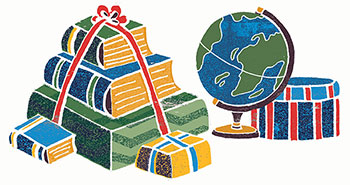
Critics’ choice
Various reviewers
Economics
Martin Wolf
Business
Andrew Hill
Politics
Gideon Rachman
History
Tony Barber
Science
Clive Cookson
Art
Jackie Wullschlager
Architecture
Edwin Heathcote
Cinema
Danny Leigh
Classical music and Opera
Richard Fairman
Pop
Ludovic Hunter-Tilney
Sport
Simon Kuper
Fiction
Neville Hawcock
Fiction in Translation
Ángel Gurría-Quintana
Literary Non-Fiction
Carl Wilkinson
Poetry
Maria Crawford
Crime
Barry Forshaw
Science Fiction
James Lovegrove
Children
James Lovegrove
Young Adult
Suzi Feay
Travel
Tom Robbins
Fashion and Style
Jo Ellison
Food
Tim Hayward
Gardens
Jane Owen
FT columnist
The only thing wrong with the fourth volume of Elena Ferrante’s Neapolitan quartet — the story of an intense, lethal friendship between two women — is that it is the last one. On finishing each of the volumes that follow two girls born in a violent, corrupt Naples neighbourhood in the 1950s as they grow up and compete for lovers, success and fame, there was the consolation of more to come. The Story of the Lost Child brings this beautifully translated literary soap opera to an enigmatic close, leaving you missing both Lila and Lenù, and marvelling at the scale of the damage that one woman can inflict on another.
. . .
Chigozie Obioma
Author of The Fishermen, winner of the 2015 FT and OppenheimerFunds Emerging Voices Award for Fiction
The howling masterpiece of 2015 must surely be Eka Kurniawan’s Beauty is a Wound. It is — I mean it — a howl, an outrage, and a sheer burst of particular talent. It is the kind of thing you want fiction to do, and the kind of thing you want to imagine it is doing. It tells the story of a woman who returns from the dead after having birthed a “shirt-like” human being who is ironically named “Beauty”. Kurniawan sharpens the story of Indonesia with an energy that is rare.
. . .
Author of The Face of Britain
and FT contributing editor
“Gigantic above all in the capacity for joy” is the way Primo Levi characterises Rabelais — an unlikely choice of literary hero for Levi until one realises, from the magnificently compendious The Complete Works edited by Ann Goldstein, that lurking within the gravely poetic chronicler of torment was a man ravenous for life. All Levi’s great works of sorrow and solemnity are gathered here but also many surprises — vivid, witty meditations on, inter alia, earwigs, Ezra Pound, who “in order to make sure he was not understood even wrote in Chinese”, and his grandfather’s fabric shop in Turin, as well as some lovely poems. It’s time to stop treating Levi like the prompter of tears and to regard him instead as a composer of illuminations; the world’s enchantments set down beside its mysteries and terrors.
. . .
Steve Silberman
Author of Neurotribes
, winner of the 2015 Samuel Johnson Prize
There’s no question that raising a son or daughter on the autism spectrum can be extraordinarily difficult. Now, in Uniquely Human by Barry Prizant and Tom Fields-Meyer, we finally have a book that provides parents and therapists with compassionate insights into these children’s most challenging behaviours, informed by the recollections of autistic adults. By viewing behaviours such as tantrums and self-injury as attempts to make sense of a world that feels overwhelming (instead of merely as “symptoms”), Prizant and Fields-Meyer enable parents to directly relieve their children’s sources of distress and focus on building on their strengths.
. . .
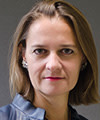
Caroline Daniel
Editor of FT Weekend
Robert Harris, once a Fleet Street political editor, has channelled his knowledge of the nuances and narcissism of modern-day politics and cast it back into the world of Julius Caesar — a world that elevated back-stabbing to an epic level. I had overlooked the first two books of this trilogy of Cicero and started with the last, Dictator . It revolves around three powerful men, Julius Caesar, Pompey the Great and Marcus Crassus, but Harris frames his book in the voyeuristic realities of Cicero’s everyday life (“Caesar’s naked hairless torso reclining on a massage table”) and the compromises he made to stay alive and engaged in the bloody sway of events.
. . .
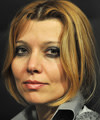
Elif Shafak
Author of The Architect’s Apprentice
Not In God’s Name by Jonathan Sacks, Britain’s former chief rabbi, draws on history and theology to analyse the roots of religious-inspired violence and what he describes as “altruistic evil”. Dualistic ways of thinking lie at the core of religion, dividing humanity into tribes of “us” versus “them”. What is new, however, is an escalation of hostility and violence exacerbated by political and social conflicts, technology and power of networks. This is a powerful, compelling, timely book that does not deny the dark side of faith. Sacks underlines that extremists create more extremists but insists that it is not too late to stop this vicious cycle.
. . .
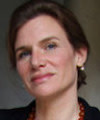
Mariana Mazzucato
Professor of economics and author of The Entrepreneurial State: Debunking Public vs Private Sector Myths
Given the important role that China is playing around the world, economically and increasingly technologically, we need to try to understand it — and keep an open mind about what we learn. The China Model by Daniel Bell does just this and provocatively asks whether China’s “political meritocracy” can offer a legitimate alternative to western democracy. The book challenges the parameters of the static economic debate, fine-tuning our understanding with insight into a model that is neither a “planned top-down system” nor an “emerging market system”. Bell is not an apologist for China but someone who teaches us to ask different questions. And these questions are fascinating.
. . .
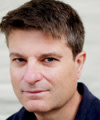
Martin Ford
Author of The Rise of the Robots
, winner of the FT/McKinsey Business Book of the Year Award
The End of Plenty by Joel Bourne is an engaging look at the challenges we are likely to face producing sufficient food in an age of unprecedented global population, environmental impact and climate change. For someone who has been focused primarily on the implications of accelerating information technology, this book was a stark reminder that Moore’s Law does not apply to food production technology and that there is a very real risk we may be headed towards a future in which digital abundance coexists with a scarcity of tangible resources that are essential for human survival and wellbeing.
. . .
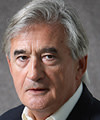
Antony Beevor
Author of Ardennes 1944: Hitler’s Last Gamble
In Black Earth , Timothy Snyder forces us to look afresh at the greatest crimes of the 20th century. Hitler wanted to erase the identity of neighbouring nations. So did Stalin. Abolishing a nation made its citizens vulnerable. Snyder’s arguments provide an important warning from history. We only have to look at the collapse of nation states in the Middle East and the attempted annihilation by Isis of the Yazidis and other religious groups to know that the dangers are still with us.
. . .
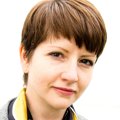
Melissa Harrison
Author of At Hawthorn Time
, shortlisted for the 2015 Costa Novel Award
Sometimes a writer at the peak of their powers expands what literature is able to achieve, and this was the case with Claudia Rankine’s breathtakingly subtle dissection of the daily poison of structural racism. The experimental form of Citizen: An American Lyric helps it go far beyond the personal, cleverly playing with the reader’s assumptions until our sympathy and our anger are engaged — and our unexamined biases are revealed. It’s a staggering example of the power of poetry to express something long unspoken — and to leave readers changed by the experience.
. . .
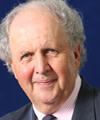
Alexander McCall Smith
Author of The Woman Who Walked in Sunshine (No 1 Ladies’ Detective Agency)
Rosemary Goring’s After Flodden introduced us to her talents as a historical novelist. Now she cements her reputation with Dacre’s War, a wonderfully exciting — and romantic — account of struggles on the English/Scottish border in the 16th century. People misunderstand Scotland if they think that the Highlands had a monopoly of lawlessness; the Highlanders could teach the Borderers nothing when it came to fierceness and cunningness. If you want to understand why relations between England and Scotland have not always been easy, then Goring’s superb novel will help. Walter Scott would have enjoyed this greatly.
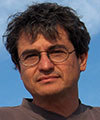
Carlo Rovelli
Physicist and author of Seven Brief Lessons on Physics
In Steven Weinberg’s To Explain the World: The Discovery of Modern Science and Frank Wilczek’s A Beautiful Question: Finding Nature’s Deep Design, two Nobel physicists give two astonishingly different accounts of the history of science, from antiquity to their own discoveries. Weinberg takes an unapologetically hard-headed stance, where philosophy, beauty and so forth are denounced as misleading. Wilczek sketches a dreamy vision, where beauty and harmony are essential ingredients of the quest for knowledge. Who is right? Both: this is the magic of science, which coherently combines wildly diverse skills. Weinberg is a father of electroweak theory, Wilczek of strong interaction. Still unsolved is gravity: what are the skills we need to solve it? We do not know yet.

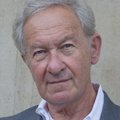
Comments